God/Moses Refute


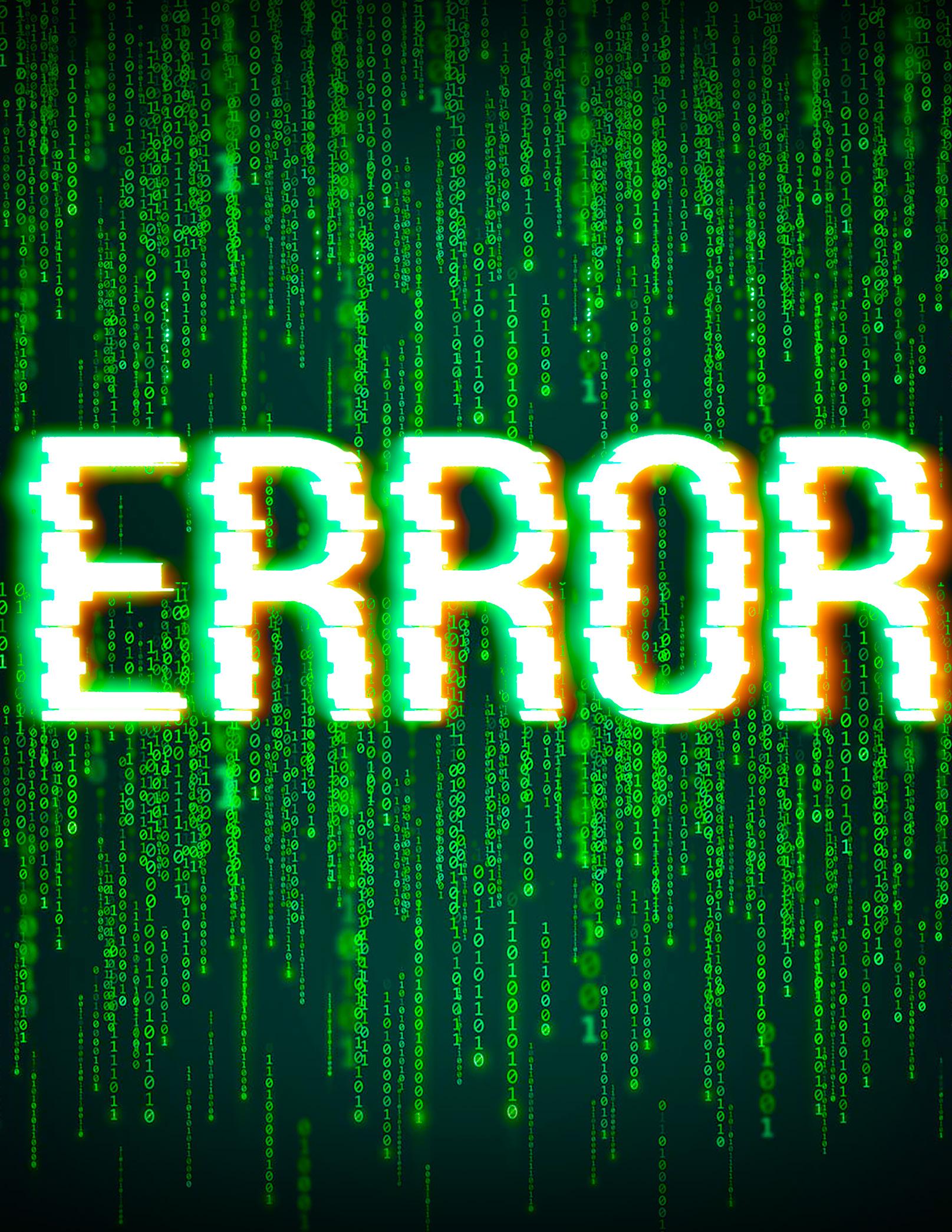
FREE
Just click any icon in this issue





2 | WWW.MESORA.ORG FEB. 24, 2023
the
THE JOURNAL ON TORAH THOUGHT
3 Thoughts
7 God Refutes Mysticism
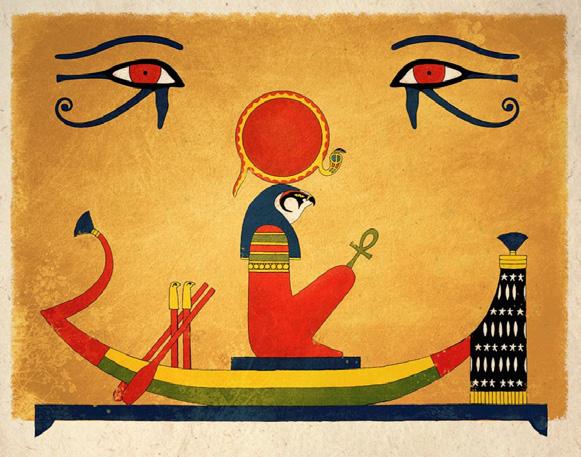
13 Jewish Unity
8 Megilla


“Lest you li your eyes heavenward, and you see the sun and the moon and the stars, the whole heavenly host, and bow to them and serve them, that God your God allo ed to all peoples under heaven”
(Deut. 4:19)
Being allo ed to “all people” prevents star/sun worship. Moses says the luminaries do not favor certain people. is defeats the purpose of idolaters.

THOUGHTS
Judaism is Perfect
In the beginning of Mishpatim, Rashi says that going to the others nations’ courts—even in a matter that they rule exactly like the Jews—is still a profanation of God and supports their idolatry. The verse used in support is, “For not like our God are their gods, and their judges are our enemies” (Deut. 32:31). Attending other courts suggests that Judaism is insu cient to
cover some matter, a profanation of God and His Torah, as if God could not address all human a airs. This also elevates alien religions. But our God did not miss anything; His Torah addresses all matters: “Our God is not like theirs.” And by attending their courts, “their judges are our enemies” as such attendance discredits Torah. ■
Subscriptions are free. To subscribe, send any email to join@mesora.org We invite feedback at comments@mesora.org –––––––––––––––––––––––––Articles may be reprinted without consent of the Jewishtimes or the authors, provided the content is not altered and credits are given. WWW.MESORA.ORG FEB. 24, 2023 | 3
R. MOSHE BEN CHAIM & HOWARD SALAMON A number of topics are addressed
RABBI MOSHE BEN-CHAIM Moses exposes the flaw of star/sun worship MESORA
5 Moses Refutes Mysticism
RABBI MOSHE BEN-CHAIM
RABBI MOSHE BEN-CHAIM Parsha: Tabernacle exists to correct human error
DANI ROTH Haman’s hatred and Morcechai’s strategies (CONT. ON NEXT PAGE)
RABBI REUVEN MANN Sinai’s central role in Jewish
| |
unity
letters and questions
| Please send
to: Comments@Mesora.org |
Lengthy Discussion
The reason lengthy discussion is required to acquire Torah knowledge [1] is due to 2 considerati0ns:
1) Torah’s depth: what is perceived on a surface read, is not the full scope of God’s brilliance contained in all areas of Torah. Extended discussion reveals more points and nuances.
2) Torah (and all wisdom) is “designed.” We don’t think of wisdom that way, but just like all other creations, wisdom too was designed. Only after seeing one idea, is an another idea perceived. The mind can focus on grasping only one concept at a given moment, and upon grasping it, the mind then either applies it or contrasts it on other areas. This application and comparison of an idea to other matters reveals di erences and similarities. Di erences cause the new idea’s uniqueness to stand out. For example, upon seeing a gray swatch, one says it is gray. But when comparing it to another shade of gray, one sees that the first swatch is actually “darker and bluer gray.” Comparison reveals uniquenesses. Proverbs’ verses are almost all dual statements. Each verse says something in 2 slightly di erent manners, and this comparison reveals more: “Torah is a graceful wreath upon your head, and a necklace about your throat” (Proverbs 1:9). A simple read, and we learn that Torah “adorns” man. But “head” and “throat” teach further, that Torah enhances one’s “mind,” and one’s “speech.” Comparison of head to throat and lengthy discussion reveal more insights.
[1] Pirkei Avos 6:5 ■
Altar & Peace
Sifsei Chachomim elaborates on Rashi who says that civil matters (laws of slaves) rightly follows the previous Torah section which addressed the altar, as both matters are “completely equal” regarding securing peace. The altar secures peace between God and man and civil laws secure peace between man and man. What is intriguing is that Sifsei Chachomim makes clear that it is not the sacrifice, but it is the altar that secures peace. But an altar is not an action, it is simply an object. How does it secure peace? One would think an action is required to secure peace.
Sacrifice is a discrete, short-lived phenomenon. Of far greater value is an idea which governs one’s entire life. Maimonides teaches
that Adam the First brought a sacrifice immediately upon his creation. He expressed his realization that his existence is unnecessary…he should be like the dead animal he just sacrificed. Thereby, the altar upon which he sacrificed embodies man’s relationship to God: that of a subordinate. Altar thereby creates “peace” between God and man, as we define this peace as God's approval of man's state. When man accepts his subordinate status and God's authority, we refer to this perfected human state as “peace between God and man.” ■


Prescription for Man’s Happiness
HOWARD SALAMON
“Oh lovers of Hashem despise evil: He guards the lives of his devout ones, from the hand of the wicked He rescues them” (Tehillim 97:10)
I try to listen to Dennis Prager, a conservative talk radio show host who has mentioned the first part of this verse many times. He was showing that our society was decaying rapidly as it is a secular one with little or no belief in God or religion. This is what the verse says, that a person who loves God must hate evil and one that loves evil must hate God. There is no other option as this divine statement confirms. Let’s see if we can define this statement. Parenthetically, we say these words in our Friday night prayers.
If one loves God he must hate evil and one that loves evil must hate God. First we must define what love and hate are in regard to God. When one loves God, we cannot mean an emotional love as one loves a spouse, friend or parent. These are emotions that we have for another human being that cannot relate to God, as God is not a physical being. When we say “love” in relation to God we mean drawn toward Him via learning his Torah or creations. This is the only knowledge one can have of God. Man is amazed and drawn to the source of all reality in the world. When we say one who loves God must hate evil, it means that he yearns to learn more about God through Torah and nature. He recognizes a supreme being that gave us the Torah as a set of morality to live by and have the happiest life possible, Who created the Universe from nothing and that
man is just a created, dependent being. He must hate evil as the Torah prescribes what the good is, what evil is, and he only wants to live by this formula as he recognizes this is reality. Anything that goes against God’s word he must look at as evil. Hating God would be the opposite…moving away from Him, despising him as not recognizing Him in any way.
The sinful man knows that he’s going against God’s Torah prescription of how to live a righteous and happy existence. He cannot follow this formula as he doesn’t want to answer to anyone but himself. He feels the whole world was made for him to do as he pleases. His idea of what the good is, is totally corrupt. His morality compass is skewed. He cannot hate himself for going against God’s reality, as we all believe that we are always doing what’s right in our own eyes. Therefore he must project this hate onto God. Hence, he loves evil and hates God. ■
Acquiring Torah Knowledge
HOWARD SALAMON
Greater is Torah from the Priesthood and from Kingship because Kingship is acquired with thirty degrees and Priesthood with twenty four; whereas the Torah is acquired with with forty eight matters and these are them; with learning, the ear that hears, with lengthy discussion, etc. (Pirkei Avos 6:5)
Let’s try and define “The Torah is acquired with lengthy discussion.” It means that Torah knowledge is acquired only when it becomes part of you, i.e., acquired. How? If you discuss it with someone else.
To illustrate, the last few months I have been very fortunate to be davening with my brother Mark. On some occasions we discuss a Torah idea or just a piece of knowledge as we are taking o our tefillin and leaving the Shul. On one occasion we were discussing an idea back and forth until we had the idea clear. Afterwards he said what his chavrusa Ruben Gober said to him many times, “The Torah is acquired through talking it out.” Meaning, after we discussed it back and forth, the idea was made clearer in our minds. If either of us just had merely repeated it to the other, while we would “hear it,” without lengthy discussion it wouldn’t have been acquired or made part of us. ■
4 | WWW.MESORA.ORG FEB. 24, 2023
SHARE
THOUGHTS
Moses Refutes Jewish Mysticism

SHARE WWW.MESORA.ORG FEB. 24, 2023 | 5
Ra: Egyptian deity of the sun
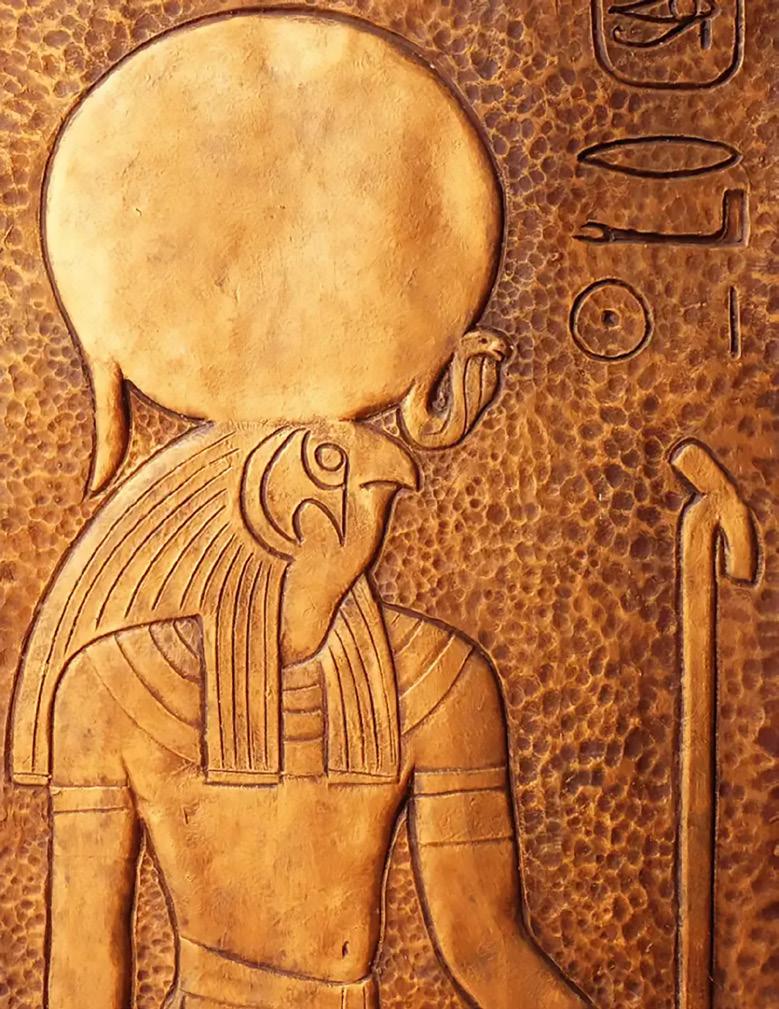
By the Fifth Dynasty, in the 25th and 24th centuries BC, he had become one of the most important gods. Sfter 210 years in Egypt, the Jews might have adopted such deities and Moses therefore warns against the later on.
The sun shines equally on us all; I assume you would agree? This is Moses’ message, but what is his true meaning?
“Lest you lift your eyes heavenward, and you see the sun and the moon and the stars, the whole heavenly host, and bow to them and serve them, that God your God allotted to all peoples under heaven” (Deut. 4:19). (Talmud Avodah Zara 55a)
Here, Moses repudiates sun, moon and star worship. As Rabbi Israel Chait taught, at the core of idolatry is the ultimate desire that one is favored by the deity he serves. Man worships an object with the hopes that the object will recognize him and improve his a airs.
Moses’ argument here is perfect. He rejects the concept of the heavenly spheres favoring a particular nation or person, which is the primary motivation of idolatry. That is, Moses teaches that God allotted the heavenly luminaries to give light indiscriminately…to “all” peoples. Luminaries do not favor one nation or person over another. This message intends to eliminate the Jews’ attraction to the alien practice of star worship. Moses exposed the alien belief that luminaries favor certain individuals.
Rav teaches the dual meaning of the word “allotted” (chalak) to also mean “make smooth.” Rav said,
“God made it smooth (easy) with words/matters for the nations of the world to be attracted to star worship to remove them from the world.”
On the surface, that sounds vicious. But this can't be so, as God gave every human being a soul and wants all mankind to have the best life. This applies to both gentile and Jew. But what Rav means is that God does not interfere with one's freewill by making it di cult to sin. It
is God's will that every person freely evaluate reality using his mind, and not avoid sin due to emotional di culty. Therefore, God removes all hurdles on the path to worshipping the sun, moon and stars. This is expressed by saying, “God made it smooth with words to worship them.” Smooth “with words” means the idolaters’ own words (interpretation) that luminaries are deities, is what enabled their idolatry. Meaning, it is not the physical phenomena itself that in anyway suggests the luminaries are deities, but it is the idolaters’ “words”—his imagination—that assumes the luminaries are gods.
Another reason God makes these heavenly luminaries so amazing is to impress upon man the greatness of their Creator. Creation is not to be compromised in any way by inhibiting its amazing properties, for that would minimize God’s greatness, while God wants man to grasp His greatness through studying nature.
Reish Lakish supports Rav’s teaching with the verse, “If you go to the scorners, you'll become scorner, but to the humble kindness is given” (Prov. 3:34). Rashi explains, “If a person is attracted to scorners, he too will scorn others with them.” Reish Lakish explains, “If one comes to impure himself, the doors opened.” Meaning, as stated above, God does not interfere with one's free will and if he chooses to scorn or worship stars, the path is open. Had God created a world where lightning strikes one as he sins, man would not have the preferred free will to determine his actions, as his fear of lightning would suspend his free thinking.
We also derive a separate idea: “If you go to the scorners, you'll become scorner, but to the humble people, kindness is given” means that the a ect on man di ers between scorners and humble people. Scorners entice the aggressive part of man. Thus, one associating with scorners becomes a scorner himself. But humble people do not oppose our egos, and with no ego threat, natural pity and kindness emerge. ■

6 | WWW.MESORA.ORG FEB. 24, 2023 SHARE
Rabbi Moshe Ben-Chaim & Howard Salamon
God Refutes Jewish Mysticism


SHARE WWW.MESORA.ORG FEB. 24, 2023 | 7
Rabbi Moshe Ben-Chaim
What was the sin of the Jews in creating the gold calf? Torah teaches the Jews feared that the “man” Moses who took them out of Egypt had perished [1]. This expressed the Jews’ inability to abandon their need for a physical leader, driving them to create the Gold Calf. The Rabbis teach that God's command to create the Tabernacle was a concessionary response to the Jews’ mindset. Meaning, as the Jews were overly attached to physicality in the religious life, God created a controlled and highly detailed mechanism (Temple worship) through which their physical needs would be properly controlled and directed towards God. This included restrictions on creating any additional figurines.

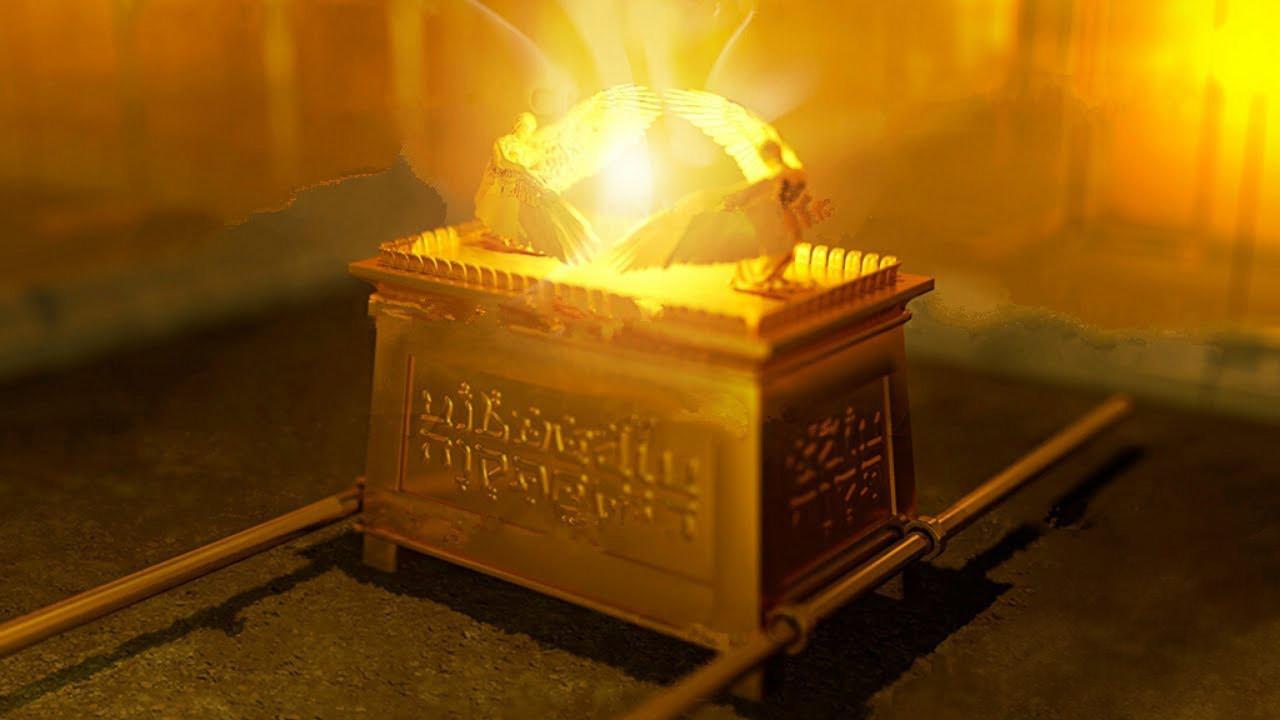
At the center of Tabernacle and Temple, was the room called the Holy of Holies. This room was o -limits, except for Yom Kippur, when the high priest would enter twice. In this room the ark was placed, which contained the two sets of tablets from Sinai. And from this room is where Moses perceived God’s communications [2]. In other
words, God cannot be approached physically. In fact, when Moses commenced construction of the Tabernacle, his first act was to suspend the curtain. This was to indicate that there is a “veil” between man and God. Maimonides teaches that on the day of Revelation at Sinai, there was clouds and rain, again to indicate this veil. God said that He would come to the people in the “thick cloud” [3].
The message of veils and the Holy of Holies being unapproachable, is that the human mind has limits. The Jews sinned when they imagined they could create a deity out of gold. They felt their minds accurately perceived religious practice. Many years later, when the Philistines returned the ark to the Jews, the Jews opened the ark to look inside of it [4]. They thought they could see something in connection with God. They were killed, and so were Aaron's sons, who approached the Holy of Holies [5]. And again at Sinai, God commanded Moses to rope-o the mountain [6], for anybody who would try to approach God through physical proximity would be killed. All these cases warn man against
8 | WWW.MESORA.ORG FEB. 24, 2023 SHARE
(CONT. ON NEXT PAGE)
feeling secure in his knowledge, and assuming any physicality in connection with God, that means substance or location. Such imagination of God meets with death as one's life is worthless when his concept of God is wrong. Torah teaches that at Sinai there were men who imagined they saw God [7], and Rashi says God delayed punishing them in order not to mix sadness with the day of Revelation.
Tabernacle is constructed with a room that is o -limits, and this is the Tabernacle’s focus. This corrects the Jews’ imagination that they could determine religious practice, and what a deity is. Although from youth, we become so ingrained in our dependency upon our parents—physical authority figures—we must ultimately recognize that they are not special. We must abandon the need for security in humans and transpose that onto God, who is the only one who can o er security. We cannot know what God is, God told this to the greatest person who ever lived, “[Moses] you cannot know Me while alive” [8].
But Tabernacle and Temple also have a room that is approachable, the Holies. Placed in this room is the menorah, the table, and the incense altar. These represent areas of knowledge that man can perceive. Menorah has seven branches, which reminds us that the God we relate to is the Creator who rested on the seventh day. The table has 12 loaves of bread which teaches God's ability to sustain the 12 tribes. And the incense altar—sacrifice—teaches that our actions are recognized by God. The three fundamentals which this room teaches are: who God is (the Creator), that God is omnipotent (sustains with bread), and omniscient (recognizes man’s sacrifice). God’s omniscience, and His omnipotence are also the two themes of the High Holidays.
We are born deficient of all knowledge. We must not imagine what is real, but learn reality from our senses, our minds and from Torah. Otherwise, we are wrong. ■
HAmAn’s Anti-Semitism & moRDehcai’s Plan
DANI ROTH
Esther summoned Hasach, one of the eunuchs whom the king had appointed to serve her, and sent him to Mordechai to learn the events. Hasach went out to Mordecai in the city square in front of the palace gate; and Mordechai told him all that had happened to him, and all about the money that Haman had offered to pay into the royal treasury for the destruction of the Jews. He also gave him the written text of the law that had been proclaimed in Shushan for their destruction. He told him to show it to Esther and inform her, and charge her to go to the king and to appeal to him and to plead with him for her people.
(Esther 4:5-8).
Why was it important for Mordecai to tell Esther about the money Haman offered the king to wage war on the Jews? After all, the king was aware of Human’s offer directly from Haman himself.
[1] Exod. 32:1
[2] Exod. 25:22
[3] Exod. 19:9
[4] Samuel I, 6:19
[5] Lev. 10:1
[6] Exod. 19:12
[7] Exod. 24:10,11
[8] Exod. 33:20
It may be to show Esther that Haman was on a lower level than Achashverosh, and that’s why Haman sought to pay to destroy the Jews. This fits in with Mordechai’s plan, because it revolves around Esther turning Achashverosh against Haman. Mordechai urged Esther to reveal to the king Haman’s anti-Semitism (he’d even pay large sums to kill Jews), exposing that Haman had no real loyalty to the king; he operated personally. This could motivate the king to turn against Haman and save the Jews. And although the king knew of the monetary offer, Mordechai might have also intended to fortify Esther emotionally against Haman which cold be a daunting task. ■
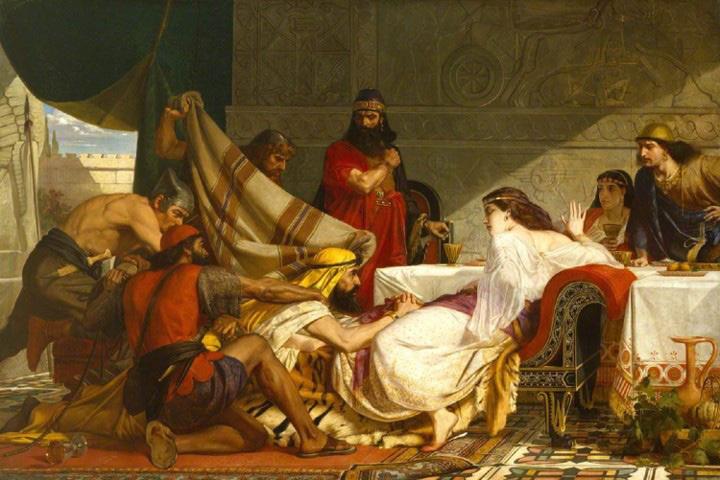
WWW.MESORA.ORG FEB. 24, 2023 | 9 SHARE



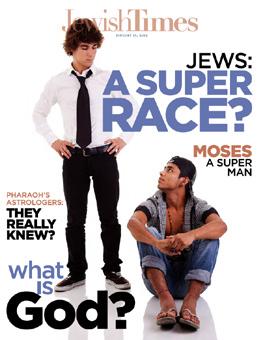

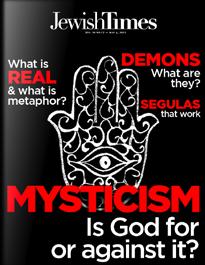

1 0 | WWW.MESORA.ORG FEB. 24, 2023 Original, thought provoking articles on Torah, Israel, science, politics and readers’ letters. Enjoy all 632 back issues free: www.Mesora.org Subscribe to the FREE Jewishtimes. Subscribe by emailing: Join@Mesora.org SHARE

WWW.MESORA.ORG FEB. 24, 2023 | 1 1 SHARE Designers of the Jewishtimes & Mesora.org Building loyalty and sales through design strategies 516.569.8888 NYDesign.com Branding UI/App Design Wires/Prototypes App Store Design Dataviz/Charts Infographics Iconography Illustration Websites Landing Pages Editorial Design Presentations Social Media Advtg/Promo Animation Packaging
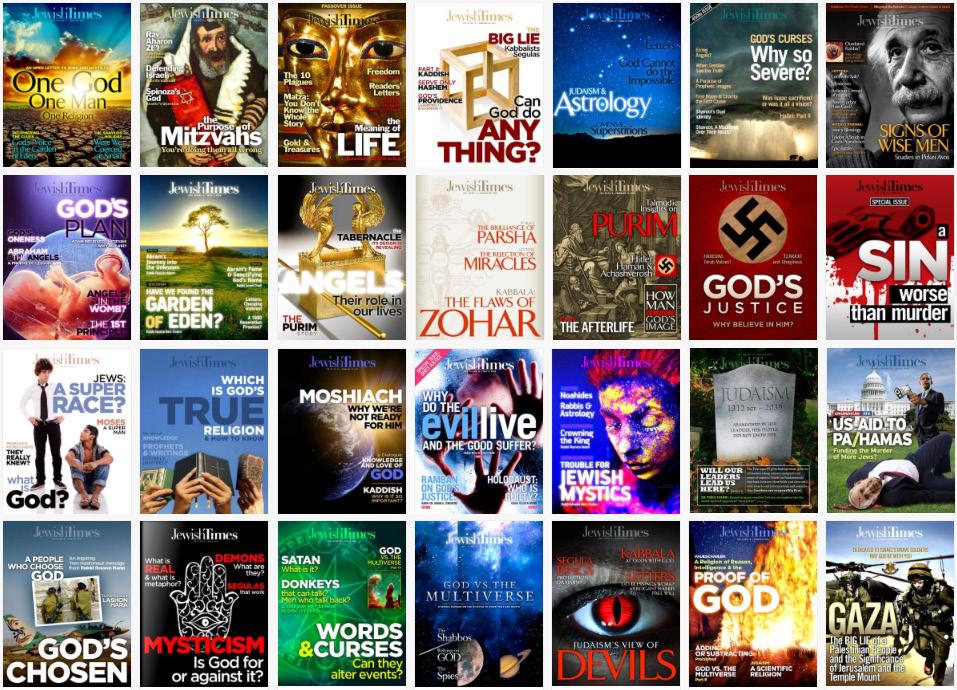
1 2 | WWW.MESORA.ORG FEB. 24, 2023 Thought-provoking articles on Torah, Israel, science, politics and readers’ letters. 25 Years. 630 Issues Share a FREE subscription. Click icon below: SHARE
Rabbi Reuven Mann
The Basis of (True) Jewish Unity
This week’s Parsha, Terumah, describes the great project of constructing the national Sanctuary, the Mishkan. It begins by listing the various materials for which donations would be welcome. It was preferred that people voluntarily donate than that they be compelled by taxation.
In fact, this approach seems to concur with modern fundraising techniques. The idea is to arouse the potential donor to become personally connected to the great work the “charity” is doing so that he will adopt it as a personal cause and remain committed to it.
The essential function of the Temple was the bringing of Korbanot (Sacrifices). The primary objective of the o erings was to obtain atonement for sins, of the individual and the community. The special service of Yom Kippur which could only be performed by the Kohen Gadol (Chief Priest) e ectuated forgiveness for the entire Congregation of Israel.
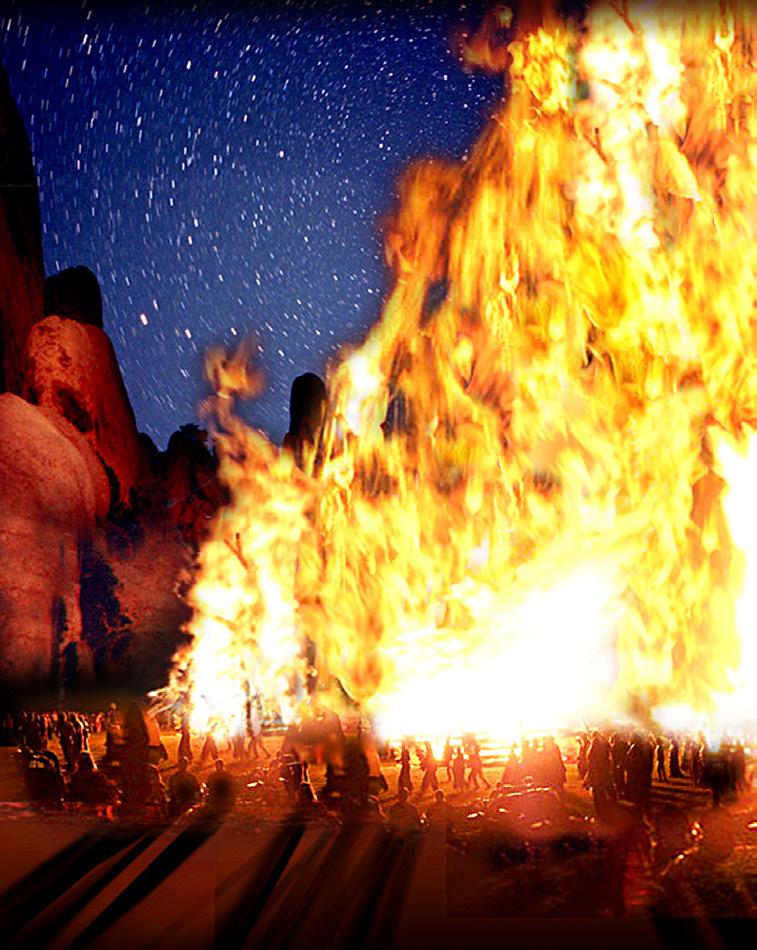
Thus, we see that Judaism does not expect man to be perfect and never transgress. To the contrary, it is aware of the “sinful” nature of man and takes steps to accommodate it. Our religion is unique in its firm belief that man can acknowledge his sins and overcome them. Judaism believes in the perfectibility of man and the human race. We do believe in and look forward to the Messianic era in which, “Nation will not lift up sword to nation, neither will they learn war anymore because the world will be filled with the knowledge of G-d as waters cover the sea” (Isaiah 2:4, 11:9).
In addition to providing a means for atonement, the Temple provides another vital benefit. Nachmanides (Ramban) explains that the Temple constitutes a reminder of the great Revelation which took place on Mt. Sinai: “The secret of the Tabernacle is that the Glory which abode upon Mt. Sinai, openly, should abide upon it in a concealed manner. For just as it is said there, ‘And the Glory of the Eternal abode upon Mt. Sinai’, and it is further written, ‘Behold, the Eternal our G-d hath shown us His glory and greatness’, so it is written of the Tabernacle, ‘And the glory of the Eternal filled the Tabernacle’.” Thus, Israel always had with them in the Tabernacle the Glory which appeared to them on Mt. Sinai” (Ramban, Introduction to Parshat Teruma).
We can now understand why the construction of the Mishkan was an immediate necessity and couldn’t be delayed until the Jews had conquered and settled the land of Canaan. It has to do with the very definition of Jewishness. What makes us Jewish is our belief in Hashem and in Maamad Har Sinai (Revelation on Mt. Sinai). This is not a superficial or perfunctory acknowledgment. This belief must permeate our very beings and become part of our
WWW.MESORA.ORG FEB. 24, 2023 | 1 3 SHARE (CONT. ON NEXT PAGE)
basic self-awareness and consciousness. We must constantly remember that we stood upon Mt. Sinai and heard the Voice of G-d speaking to us, His chosen People.
There is another, more practical dimension to the Mishkan. The absence of national unity and the proliferation of extreme divisiveness has played a harsh, destructive, role in Jewish history. In fact, the Rabbis say that the second exile was caused by the fact that the Jews did not treat each other respectfully.
This problem remains with us even in the modern state of Israel. The Jews are very argumentative and extremely prone to have strong opinions on all matters. This, in itself, can be a good thing, but disagreement unfortunately often turns into disdain and disparagement.
This is a very real problem, which has been exacerbated by the recent victory of the most right-wing conservative government in Israeli history. Specifically, matters have come to a head over the proposal to revamp and reform the judiciary and the Supreme Court. This has brought forth very powerful emotions and large scale demonstrations have taken place with the accusation that the reformers are destroying Israel’s democracy.
The rhetoric of those who are opposed to the reform has reached radical and dangerous extremes. Commenting on the demonstrations, former Prime Minister Ehud Olmert said, “What is needed is to move to the next stage, the stage of war, and war is not waged with speeches. War is waged in a face-to-face battle, head to head and hand to hand, and that is what will happen here. While it’s great to see one hundred thousand people turn out to protest, that’s not what will clinch the real fight. The real fight will break through these fences and spill over into a real war.”
And Tel Aviv mayor Ron Huldai o ered, “Democratic countries such as ours can become dictatorships. But dictatorships can only return to being democracies through bloodshed. This is what history has taught us.”
It’s amazing that the Mayor and former P.M. while ostensibly acting to save Israel’s democracy are openly calling for insurrection and bloodshed. Can someone tell me why these two “leaders” are not behind bars?
The Rabbis tell us that when the Jews stood at Mt. Sinai, they were as “one People with one heart”. It is our mutual belief in Hashem and dedication to the ideals of Torah that is the genuine source of Jewish unity. The Temple in Jerusalem was a living reminder of the day we heard the voice of Hashem as one unified People committed to our holy mission. May we renew that sense of dedication. May our love of Hashem and His Torah inspire us to overcome hatred and resolve all political and philosophical disputes in a manner befitting a (truly) holy Nation.
Shabbat Shalom ■
Dear Friends,
My newest book, Eternally Yours: G-d’s Greatest Gift To Mankind on VaYikra was recently published, and is now available at: https://www.amazon.com/dp/B09SHRXS3Q (see next page)
I hope that my essays will enhance your reading and study of the Book of VaYikra and would greatly appreciate a brief review on Amazon.com.
Additionally, for those in Eretz Yisrael, my books are available at David Linden’s bookstore located at Emek Refaim Street 21, Jerusalem and at Pomeranz Book store, Be’eri 5 Jerusalem. They are very nice stores to visit and browse.
—Rabbi Reuven Mann
1 4 | WWW.MESORA.ORG FEB. 24, 2023 SHARE
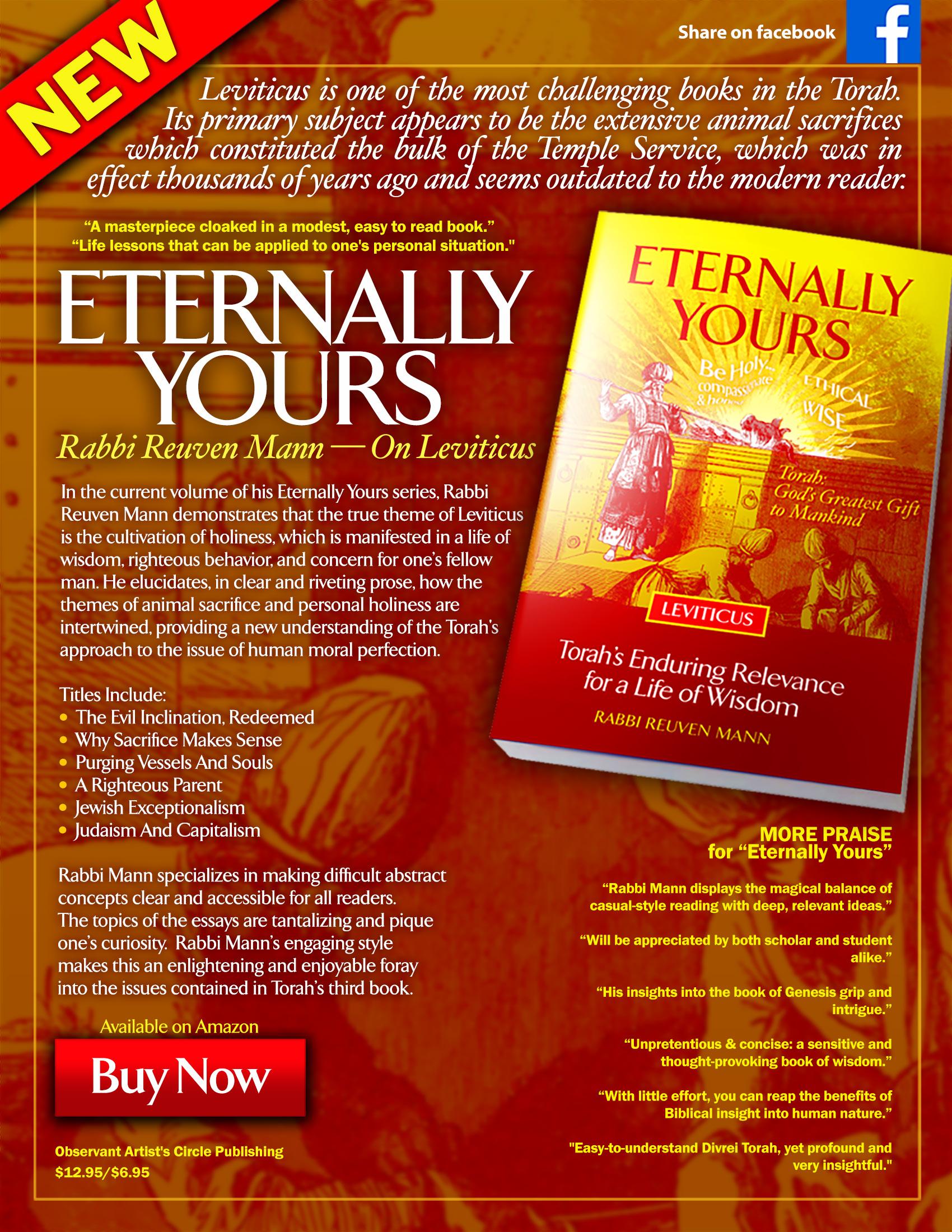


1 6 | WWW.MESORA.ORG FEB. 24, 2023 SHARE SHARE HOME REPAIR DONE RIGHT! (347)489-2048 B B G HANDYMAN &POWERWASHING SERVICES • Competitive Prices • Fully Insured • 20 Years Experience • Free Estimates BEFORE AFTER BEFORE AFTER ALL HOME IMPROVEMENTS SERVING ORANGE COUNTY, NY www.BBG HandymanServices.com Special! Vinyl Siding Powerwashing $225.00 includes algae, mildew, and mold treatment (high ranch bi-level homes) Deck Powerwashing & staining $100.00 o total price































